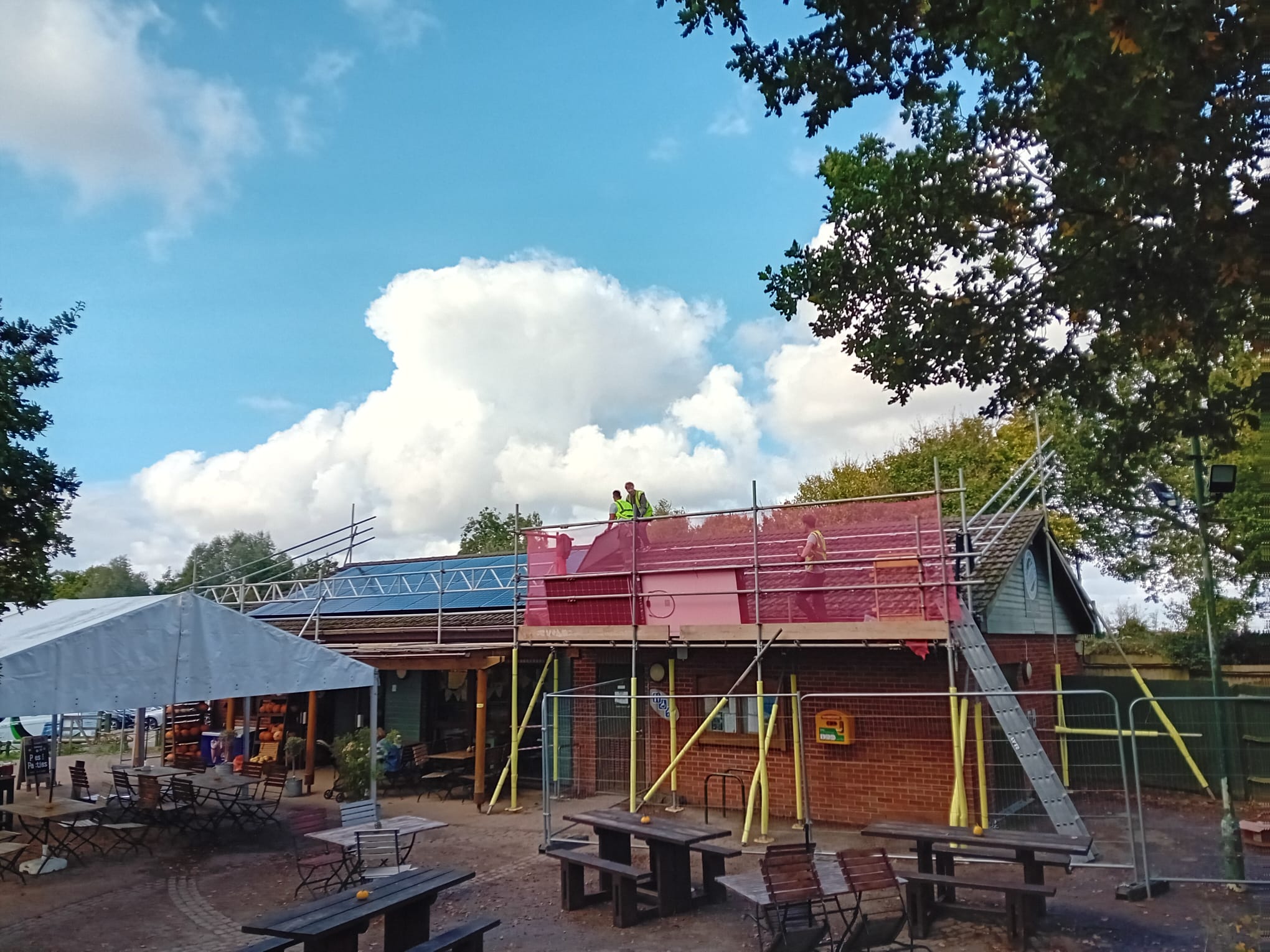Ryton Pools Country Park goes even greener with installation of solar panels

Warwickshire County Council (WCC) has taken another important step towards greener energy with the installation of solar panels at Ryton Pools Country Park.
Thirty photovoltaic (PV) modules have been installed on the café and toilet building, expected to produce13.59 MWh annually. This should fulfil 20% of the park’s energy needs and save 2.63 tonnes of CO2 emissions each year. Source: Stratford Energy Solutions.
The installation is part of the continuous efforts from WCC’s Country Parks team to improve environmental sustainability. Their hard work has ensured that Ryton Pools is not only a much-loved green space for the community, but also an important site of conservation and biodiversity. At the forefront of this work is the biodiversity offsetting meadow, home to a vast range of species of plants and insects. A characterful flock of Hebridean sheep graze the wildflower meadow and help contribute to maintaining its health.
This impressive biodiversity spreads across the site and has been captured through a series of surveys on the site. In 2023, the team recorded over 51,000 moths from 650 species, including the rarely seen Dusky Clearwing, showcasing the positive impact of the park rangers’ conservation efforts.
T he solar panel installation also sits within the broader council ambition to build a sustainable Warwickshire. WCC is installing renewable energy sources across its estate in order to meet the target of being a net zero organisation by 2030, as set out in the Sustainable Futures Strategy published at the end of 2023.
he solar panel installation also sits within the broader council ambition to build a sustainable Warwickshire. WCC is installing renewable energy sources across its estate in order to meet the target of being a net zero organisation by 2030, as set out in the Sustainable Futures Strategy published at the end of 2023.
Councillor Heather Timms, Portfolio Holder for Environment, Climate and Culture at WCC, commented:
“Ryton Pools Country Park continues to be a shining example of how we can balance the needs of Warwickshire’s residents and visitors with conservation and sustainability. The installation of solar panels not only helps reduce the park’s carbon footprint but also supports our broader goal of becoming a net zero organisation by 2030. The hard work of the Country Parks team contributes to helping both the environment and our local biodiversity continue to thrive for generations to come. A big thank you to everyone who helped make this happen!”
Find out more about the latest news from Warwickshire Country Parks at countryparks.warwickshire.gov.uk/news, or by signing up to the Warwickshire Country Parks newsletter.
